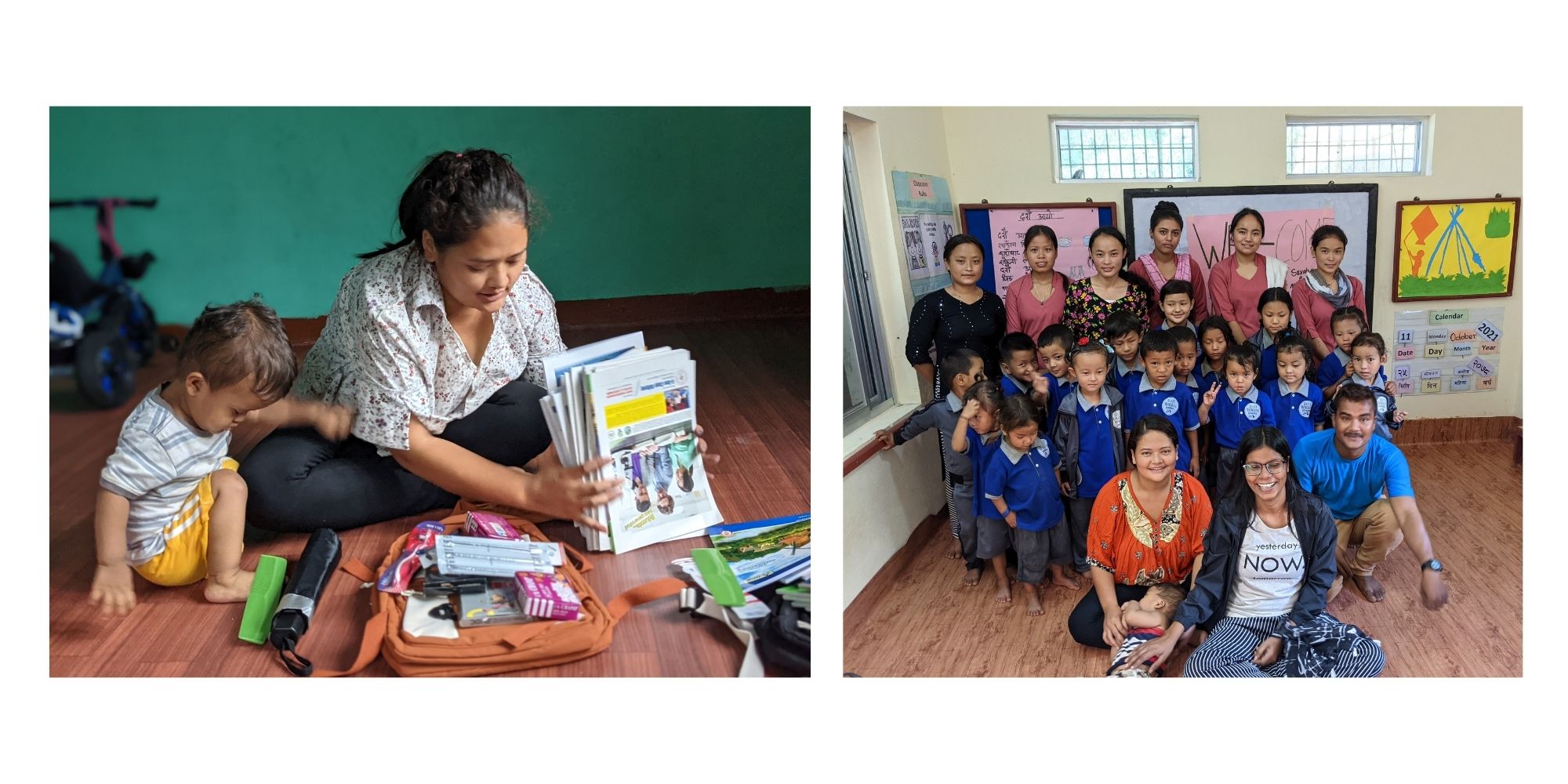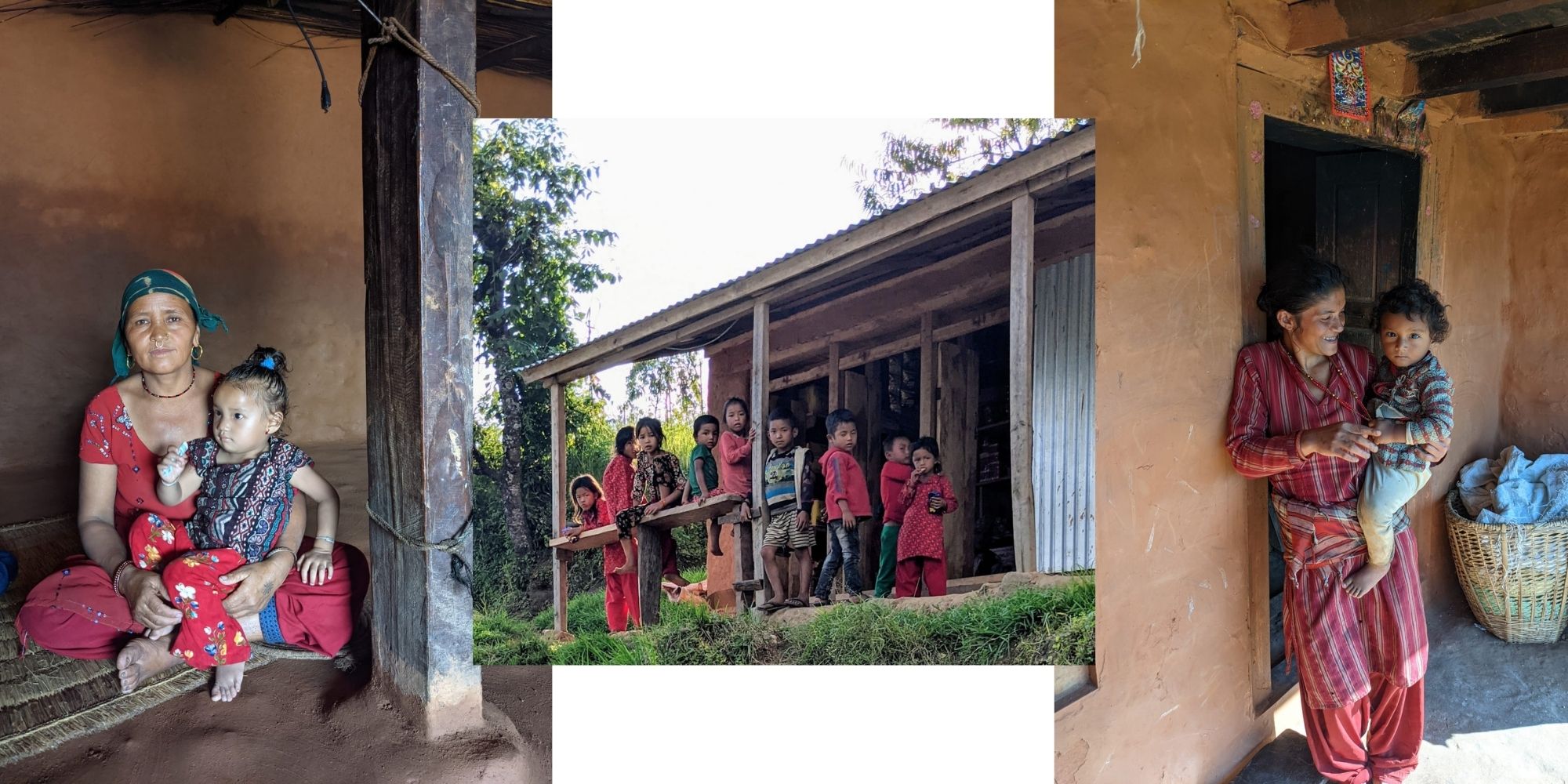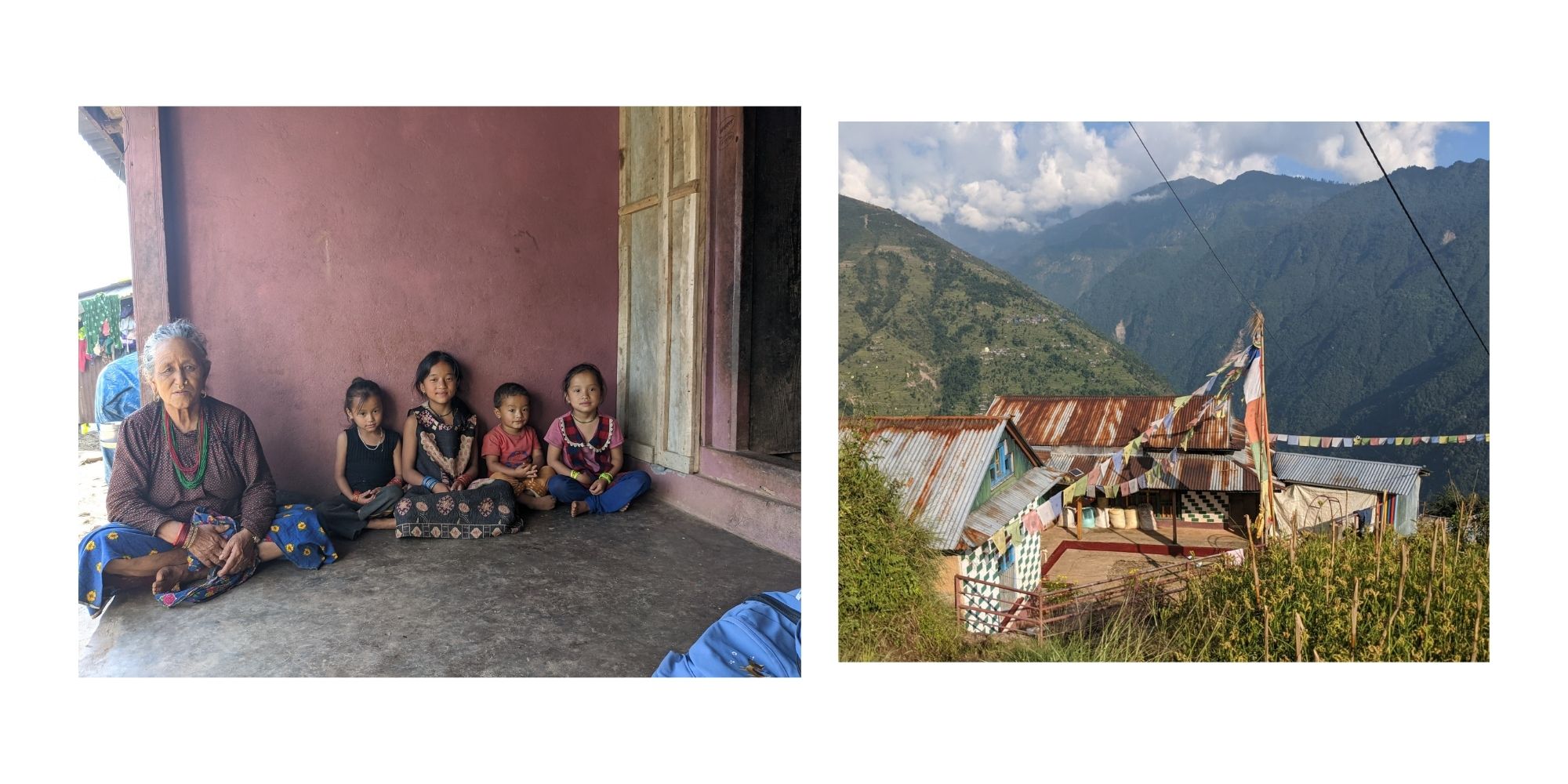Bring Education & Prevent Trafficking in rural Nepal

The Freedom School is a new school and trafficking prevention program in Nuwakot, a rural district of Nepal with a very high rate of trafficking and exploitation. The project was created to prevent trafficking and exploitation by providing high quality education to children and raising the awareness and sensitization of their parents and other community members about the negative effects of trafficking and child marriage. The school opened in Oct. 2021, and is now educating 150 kids, including 20 in residential dorms.

The project is being led by Anjali Tamang, a survivor-activist who is a member of this indigenous community. Anjali was herself trafficked to India at the age of twelve. She has been sponsored by HFC for her education and college for the last eight years, and co-authored a book about her life story with Sarah (Standing in the Way). In addition to having a deep, personal understanding of the issue and culture, Anjali is also a skilled and passionate educator.
The school currently goes up to grade 3. According to Nepali law, we are allowed to add one grade per year. Older girls attend the local government schools and live in our dormitories, where they receive tutoring, counseling and other support to help them succeed in their education. Many of the teens are returning to school after several years out of school. Eventually, our school will educate 400 children a year from kindergarten to grade 10.
Counseling and awareness workshops as well as remedial education, are provided to parents and other community members with a goal of engaging them as partners in the mission to stop child trafficking in the area.
The students are members of the Tamang indigenous community. The community is extremely poor, because they are subsistence farmers and the land is mountainous and not very fertile. Nepal anti-trafficking experts estimate that 7 out of 10 girls sex trafficking victims are from indigenous communities. Girls from the Tamang community, who were historically forced to serve as courtesans to the rulers in Kathmandu, make up most of the victims of sex trafficking to India and other countries. Over the past two decades, trafficking of Tamang girls to India has become normalized and very common, to the point where virtually every family has daughters or wives in the brothels of India.
Many children - particularly girl children - in the village and surrounding villages are not enrolled in school because of the lack of schools and teachers, high absentee rates of teachers and low quality of education at existing schools, distance from schools and difficult terrain to cross, and the demand for girls to help parents with farming or care for younger siblings. By bringing high quality education directly to this community, and by taking a holistic, full community approach to preventing exploitation, this project will offer a path to a brighter future for hundreds of girls, whose lives would otherwise be destroyed in Indian brothels.

The Problem
The Tamang community of Nuwakot is extremely poor and is a hot spot for sex trafficking to India and for child marriage. Seven out of ten underage Nepali female sex trafficking victims are from rural, Indigenous communities such as this. Tamang girls were historically forced to serve as courtesans to the rulers in Kathmandu, make up the majority of Nepalese victims of sex trafficking to India and other countries. Over the past two decades, trafficking of Tamang girls to India has become normalized and very common, to the point where virtually every Tamang family has daughters or wives in Indian brothels.
According to the U.S. State Dept Trafficking in Persons Report, Nepal is a source country for men, women, and children trafficked for the purposes of commercial sexual exploitation and involuntary servitude. Children are trafficked within the country and to India and the Middle East for commercial sexual exploitation or forced marriage, and for involuntary servitude as domestic servants, circus entertainers, factory workers, or beggars. In many cases, relatives or neighbors facilitate the trafficking of women and young girls into sexual exploitation.

The UN International Labor Organization reports that over 12,000 women and girls were trafficked out of Nepal to India every year prior to the devastating 2015-16 earthquakes, and around 200,000 were working in Indian brothels. These numbers have sharply increased after the earthquakes, and are only exacerbated by the challenges posed by COVID-19. A 2010 survey on Trafficking and Exploitation in the Entertainment Sector and Sex Industries in Nepal, conducted by Swiss organization Terre des hommes, covered 63 female workers in the entertainment sector, and half of them were Tamangs. This study and many others concluded that trafficking is most common in the Tamang, Gurung, and Magar communities.
Lack of education is a major factor in trafficking and child marriage, according to the United Nations and other research. Many children - particularly teenage girls - in Ghyangfidi and surrounding villages are not enrolled in school because of the low quality of education in government schools, complete lack of schools in the higher mountain villages, high absentee rates of teachers,and because girls are expected to help their families by going to work in the brothels of India. Others are pushed into early marriage to prevent them being trafficked and to reduce the financial burden on parents. Less than 10% of girls in the village complete high school, and there is only one female university student from her village (Anjali Tamang - the survivor with whom we are partnering on this project). When resources within a family are limited, only the boys in the village are sent to school. Girls who grow up in this environment believe that there is no other option than to obey their parents and others in authority. This is one reason why many Tamang girls who are trafficked do not even try to escape.
The low status of women is a third factor in human trafficking. In Nepal, and particularly in traditional rural areas such as Nuwakot, girls have low status in the family and the community. In the village, married women are traditionally expected to wash their husbands’ feet each night, then to dip a hand in the dirty water and put some water into their mouth, symbolizing their deference and low status. This is merely one illustration of the culturally accepted view of women in areas with high incidence of gender violence. Based on official data, human trafficking all over the world occurs due to the lack of family education. Children and adults who are illiterate or uneducated are more susceptible to victimization.
In Anjali’s words:
“It's really hard to explain the need for a school in my area because there are some government schools running since before I was born, and nowadays a few NGOs also working in the area. But the problem is still the concept of people is the same traditional mindset - believing girls are powerless and just machines to earn money, and still the trafficking never changes.
I built the school in the middle of the all-round hundred villages. The lower elevation area does not have as bad of a problem, but the upper villages have not one household unaffected by trafficking. 
The mind concept of people here is very different, they need education to get changed. The children, women and people are misled from childhood to value money over truth and handwork, they are farmers, they really work hard but they want a very luxurious lifestyle by not working hard, they think sending girls in the brothels is an easy way to earn money. The women there want to wear big expensive gold jewelry, they think wearing gold is more important than the pain of girls spending nights with customers. Daughters are obliged to help the family.
Let me give you some examples of the situations of the area. When I was small we were three friends; two of us got trafficked. I was rescued. One of my friends paid all debts of traffickers and returned to the village and got married and had children. Our third friend's two sisters had been in India and they got sick and died. Because of that she never wanted to go to India, as she grew older, she fell in love and got married, but because her husband didn't care for her and he kept relations with other girls and her in laws behaved very hard with her, she also became the prey of traffickers and now she is in one brothels of India. the villagers know that. when i talked with her husband, asking where is my friend? He blamed my friend for going to India. The villagers do not say where she is even though they know it.
One of my aunts was trafficked when she was young, she came back to Nepal back and again she went back and again came back and again went back. some years back she met one guy from the next village in a brothel and they got married. Now they were staying in the village with one child. Last month she found that her husband's kidneys are damaged. I heard she took her husband to India for treatment. But when she goes, how will she earn money for his treatment?
Another one of my aunts is still in India in the red light area. My grandparents will come to Kathmandu for treatment if she calls them and says that she will send money for medical treatment.They think that she is only a machine to earn money. Because of this I save little from my salary to send them for treatment so that they do not burden my aunt who is in India. My aunt told me that her brothers and some relatives are angry with her and do not talk with her because she can't give any money to them anymore as now she is old and cannot get customers.
We need to follow up and help the people to understand the real world and real meaning of living. We need to create awareness for the long term. Otherwise, it's not effective if you go teach today and move away tomorrow. We need to stay there and work there through the years. I know it will be very hard to change the concept of society there regarding girls, child marriage, and trafficking. But we will prevail.”